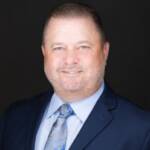Edward Hershey, President and Chief Executive Officer of California-based Home of Guiding Hands is a fearless leader in the best sense of the word. “Leaders need the courage to take risks, to jump off a cliff, and work on the details on the way down,” he said. But he also knows that while he is a risk taker, he also needs team members who will step back and study the situation before jumping. “I don’t want staff who are all just like me. Instead, we need to share similar values and have people who are a good match for their roles. That is where the magic happens.”
Hands is a fearless leader in the best sense of the word. “Leaders need the courage to take risks, to jump off a cliff, and work on the details on the way down,” he said. But he also knows that while he is a risk taker, he also needs team members who will step back and study the situation before jumping. “I don’t want staff who are all just like me. Instead, we need to share similar values and have people who are a good match for their roles. That is where the magic happens.”
Turning Experience into Expertise
Hershey served in the U.S. Navy during the Gulf War and was honorably discharged in 1993. He grew as a leader during his service. He said, “The military makes strong leaders,” he observed, and teaches three things. First is to be fair and honest in your assessments. “It’s human nature not to want to be critical; but as a leader who truly cares about your team and your organization, you need to be upfront and honest,” he said. Second, he suggested, “Treat others like you want to be treated. Work side by side with your employees; expect a lot of them and more of yourself.” Third, prepare and prepare some more. Prior to joining Home of Guiding Hands, Hershey worked for Father Joe’s Villages in San Diego, where he used his military experience and leadership skills to specialize in veterans’ needs. Hershey learned much about managing teams from Father Joe. “He told me, ‘Hire great people and get out of their way.’ That has always resonated with me, and I’ve always been successful following that advice,” Hershey said.
Like so many great leaders, this ability to absorb teachings from others has helped shape Hershey’s approach to work and sometimes life. For instance, he said that he learned from his grandparents that “we are put on this earth to help others,” which helps drive his passion for serving people with I/DD and their families. He added that his grandfather lived to be 98 and taught him that you have to continue to learn something new all the time. Hershey took this to heart and enthusiastically pursues opportunities to learn continuously. Currently, he is learning to play guitar. “I aspire to be able to play the music I really like,” he said.
Teams Build on Success, Learn from Failure
Hershey knows that without a strong, healthy workplace culture, an organization can’t thrive. Essential to this is teamwork, and Hershey said, “We constantly work to build trust and help people find their place and be successful.” He added, “We celebrate wins and failures. People are so afraid of failing. They don’t want to let down the team and their colleagues. But I like to remind them that it took Thomas Edison 1,000 times to get the lightbulb right.” As a result, his team is not afraid to try new things and to take risks. Change may intimidate some people but not Hershey and his team. “Fears about change are self-inflicted. People just want to know what will happen and how it will affect them,” he said. If you communicate well with staff and find change champions early on, he suggested, you can navigate change more effectively and without getting pulled off course by crises or other challenges. In fact, Hershey suggested that people come together in a crisis, so if you’re prepared you can handle any situation.
Key to successful change is innovation. For instance, Hershey said, “We recently started a program called Life Planning where we work with family members during care transitions so they can plan accordingly.” This is significant, he said, as the industry has never before had to deal with I/DD individuals and the issue of aging – both theirs and that of their families. As families age, there is a need to put plans and processes in place to enable people with I/DD to live as independently as possible for as long as possible. At the same time, I/DD providers need to understand diseases, conditions, and physical and mental limitations that come with aging and how these affect their patients. “This is kind of uncharted territory, but it comes down to preparing and partnerships. We have had great relationships with practitioners and are working to get families’ early support. This kind of relationship building is so important,” Hershey said.
Navigating the Future of I/DD
The future of I/DD is fraught with challenges and opportunities, Hershey said. “This sector will continue to grow and serve more people.” However, this increased demand will call for adequate staff; and staffing shortages continue to plague I/DD and other areas of healthcare. One possible solution involves artificial intelligence and other technology, he suggested, noting “We are just starting to look at the potential of tech innovations.” Moving forward, technology may be able to take on some tasks to free up staff for direct care. It also will streamline and simplify documentation and data analysis, as well as the sharing of processes that currently place workflow and time burdens on practitioners and others. “We have a disabled daughter, and we are learning that there is so much technology can do. I am very excited,” Hershey said. He recommended, “Providers should embrace change, be open to new ideas, and prepare for a variety of challenges and opportunities.”
